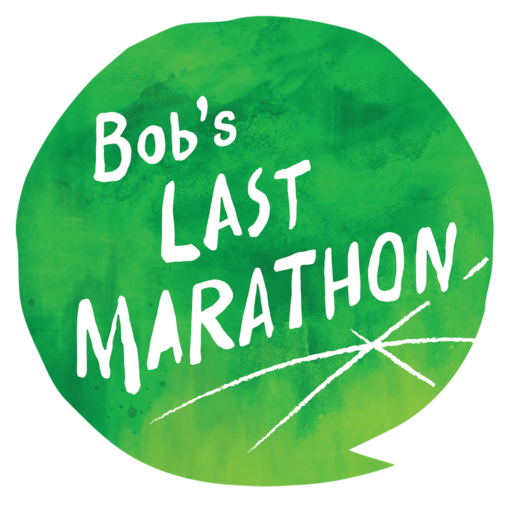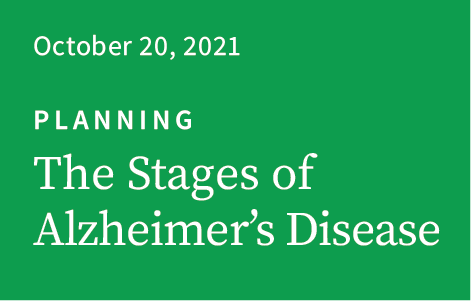Transcript
The Stages of Alzheimer’s Disease
As Executive Director of the Penn Memory Center, I am frequently asked by families living with Alzheimer’s disease, “Which stage of the disease is my loved one in?”
I base my answers on what I’ve learned from the medical literature, confirmed by years of working with families living with the disease. I explain that Alzheimer’s disease is generally broken down into three stages: early or mild, middle or moderate, and late or final. To define an individual stage, I take into consideration three factors: the person’s cognition, their ability to function, and their behavior.
Cognition refers to memory, and the ability to speak and comprehend others, recognize friends and family, and exercise good judgment.
Function is the ability to perform day-to-day activities including personal care and social roles. These activities are usually divided into two groups: basic activities of daily living, which include feeding, dressing, grooming, toileting, and bathing; and what we call instrumental activities of daily living, such as using a phone, preparing a meal, maintaining a home, and managing money and medications.
Finally, behavior refers to how a person acts in social situations and at home.
Generally speaking, we teach caregivers that in the early or mild stages of Alzheimer’s, a person has less ability to function independently and perform complex tasks, but can still perform basic activities of daily living (feeding, bathing, dressing, grooming, toileting). Cognitively, the person with mild dementia may have trouble learning new things or finding words, and might have minor blips in judgment. We expect to see minor personality changes, such as being less socially engaged.
It’s important to recognize that early-stage Alzheimer’s looks different in every person. Consider the changes in these three people. John could still get around on public transportation by himself, and was still working out, but he couldn’t tell me his address. He was mild-mannered and as friendly as ever, though much more reserved. Maggie, in her 40s with young children, was my youngest patient. She had significant problems finding words, cried frequently, and was angry. Then there was Sally, an artist who seemed oblivious to her illness; she was happy and delightful to be around, but this former artist refused to paint, and lost her short-term memory.
Caregivers often bear a double burden, coping not only with changes in their loved one’s behavior but their own feelings, and changes in their own lives. I heard from a woman just yesterday who said that if this was the early stage, she didn’t know how she’d make it to the later stages. The title of this podcast, Bob’s Last Marathon, reminds us that the Alzheimer’s journey truly is a marathon, not a sprint. And caregivers should know this from the start, to arm themselves with resources and build their inner strength to endure the long road ahead.
In the middle or moderate stage of Alzheimer’s, function remains mostly intact, but the person with dementia may need some reminders or help with basic and instrumental activities of daily living. Cognitively, we notice significant memory loss and disorientation. Conversations are often disorganized, judgment is impaired, and attention span becomes shorter. In this stage, behaviors can become challenging. We sometimes see psychosis in the form of hallucinations or delusions. Some people wander, and often they appear more angry or agitated. Some sleep more during the day or have sleep problems at night.
This stage can be confusing for caregivers because the person living with dementia still looks like themselves, and they’re able to function well in many ways. Caregiving becomes more difficult due to challenging behaviors. In an earlier episode, Occupational Therapist Rachel Wiley talked about becoming a behavioral detective to get at the root of the problem, and changing the environment to eliminate triggers. For example, Madeline’s husband, who was weight-conscious, wouldn’t eat because he felt she gave him too much food. Her ingenious solution was to use larger plates to make the meals look smaller. When adapting the environment doesn’t work, medications may be needed to help calm or relax the person with dementia.
At the moderate stage, caregivers may benefit from counseling to manage the continual changes in this progressive disease—which may call for more support in the form of either added in-home care or care outside the home. As one caregiver told me, just as she got a handle on one set of challenges, she had to adjust to another “new normal.” A family I worked with moved their loved one to a care facility when he began to wander out of the house alone, sometimes driving and getting lost in the middle of the night. Patricia felt her husband needed more care than she could provide when he became more agitated and started urinating all over their house. When Colleen’s husband, Sam, got expelled from an adult day center for violent behavior, she felt she couldn’t continue caring for him at home alone. But it wasn’t long before she brought him back and hired full-time in-home care. Through her laughter, she said, “I didn’t know I had this much patience inside of me!”
As trying as it can be to care for someone with Alzheimer’s disease, new and beautiful relationships can emerge. Suzanne, an artist, created sculptures out of the copper wires her husband pulled from old television sets. She framed them, and they even showed their work together in galleries.
As Alzheimer’s progresses to the late stage, the person with dementia can no longer function independently. Cognitively, only fragments of memory remain, language is significantly impaired, and they may no longer recognize friends or family. The individual can become restless and unable to focus, and be difficult to console or redirect. Their appearance can change, and they typically are unable to attend functions. In my experience, this stage comes on faster for people residing in care facilities.
Many caregivers request a hospice assessment in the final stage. I’m now working with three caregivers with spouses in home-based hospice who are sharing moments of joy and sadness, together until the end.
Through all three stages, Alzheimer’s changes the lives of the entire family. As the disease progresses, so do the strains on the caregiver, which can put their health at risk. Self-care is so important: People are of little use to others without their own physical and emotional health intact. If you asked the people I’ve supported, I think they’d confirm that the reason they are strong, resilient, and compassionate is that they’ve figured out how to care for themselves. They’ve educated themselves in the course of this illness. They’ve found time to exercise and meditate. They’ve joined support groups and stayed connected to others, and kept up with their own health needs. They didn’t ask for this situation, but they’ve worked hard on acceptance, and with the help of others, they’ve been able to endure the long journey of dementia caregiving.
The stories of people I support share themes of resilience and newfound sources of purpose and meaning. Finding meaning in the face of loss can propel you forward, sustain you, and provide a sense of hope, even in the darkest times.
Felicia Greenfield, MSW, LCSW
Executive Director
Penn Memory Center
www.pennmemorycenter.org

